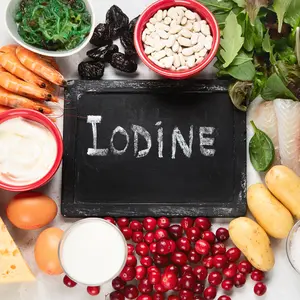

Food, Farming and Nutrition

Food, Farming and Nutrition
Pandemic Sparks Increased Use of Supplements
The use of supplements in the US increased by almost 30% as a result of the COVID-19 pandemic, according to a survey conducted in June of 2021. The data showed that some 76% of Americans are now taking at least one supplement daily.
The online poll, conducted by Harris Poll in partnership with Samueli Foundation, surveyed 2,053 adults over the age of 18. The results were weighted for age within gender, region, race/ethnicity, income, education, employment, marital status, and size of house where necessary to align them with their actual proportions in the population.
The increase in supplement use was found to be especially prevalent among men aged 35 to 44, Hispanics, and parents with children under the age of 18. It was found that 41% of the surveyed population were taking sleep aids, including melatonin or aroma therapies, while 57% took supplements for overall health and immunity. About 36% responded that they were taking supplements to boost their resistance to COVID-19.
It was found that only 47% of respondents taking supplements discussed their use of them with their healthcare provider, both because they didn’t think their provider would be interested and because they didn’t feel their doctor was sufficiently knowledgeable about supplements.
Concerningly, 52% of those surveyed reported believing that all supplements are approved by the Food and Drug Administration (FDA). In fact, the FDA doesn’t regulate the safety or effectiveness of supplements, and some supplements are marketed with fraudulent claims about curing, treating, or preventing diseases and conditions.
The list of supplements that have been shown to be helpful for certain conditions is long, including vitamin B12 for pernicious anemia; calcium, vitamin D, and magnesium for osteoporosis; ginger, glucosamine, melatonin, and vitamin D for chronic pain; vitamins B and D, iron, zinc, and magnesium for celiac, Crohn’s, and other inflammatory bowel diseases; ginseng, flaxseed, St. John’s wort, and red clover for menopausal symptoms.
Experts strongly advise consulting with your healthcare professional prior to supplement use, especially to avoid harmful interactions with prescriptions drugs.
REFERENCES
Dr. Wayne Jonas. (2021, August 25). Supplement use is on the rise. Here’s why. https://drwaynejonas.com/supplement-use-is-on-the-rise-heres-why/
Dr. Wayne Jonas. (2020, March 16). The truth behind supplement use and how to use them effectively. https://drwaynejonas.com/the-truth-behind-supplement-use-and-how-to-use-them-effectively/


 By
By






